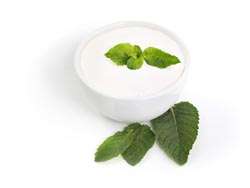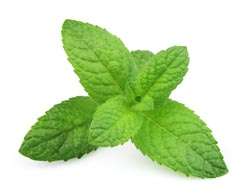Supplements
Find your care
Our compassionate GI nutrition experts provide outstanding personalized care. Call 310-206-6279 to connect with a specialist.
Vitamin D Winter

In Southern California, we are moving into what is known as a "vitamin D winter." This term describes the time of year when there is not enough UVB light to allow for vitamin D synthesis in the skin. Normally, vitamin D can be produced by the body with the aid of sunlight, in the form of UVB rays. These rays get absorbed by the skin and go through a complicated process involving the liver and kidneys to become stored and active vitamin D in the body.
Vitamin D winters occur above about 35 degrees North and South latitude. Dependent on location, vitamin D winters will occur for different amounts of time and at different times of the year. For Southern California, at a latitude of roughly 34 degrees North, the vitamin D winter is from November to early February. As you can imagine, this is a very short vitamin D winter compared to other parts of the country, such as Boston or Seattle, given their higher latitudes of 42 degrees North and 47 degrees North respectively.
With inadequate vitamin D synthesis occurring during this time of year, it is important to adequately supplement synthesis with vitamin D from foods or pills to guard against vitamin D deficiency. Ask your doctor about having your vitamin D level checked. The appropriate lab to check is 25(OH) vitamin D. Stored vitamin D is deficient below 20 ng/mL, insufficient between 20-30 ng/mL and ideal at 30-100 ng/mL. Always check with your doctor and dietitian about appropriate supplementation based on blood work.
The recommended intake of vitamin D is between 600-2000 IU per day. Consider the following food sources of vitamin D to load up on during vitamin D winter:
Food Source Portion Amount Vitamin D
- Wild salmon - 3.5 oz - 980 IU
- Farm raised salmon - 3.5 oz - 250 IU
- Sun dried shitake mushrooms - 1 oz - 400-500 IU
- Fortified milk - 1 cup - 100 IU
- Fortified cereals - ¾ cup - 40 IU
- Egg yolk - 1 - 20 IU
Probiotics - Food vs Supplements

The normal human intestinal tract houses over 100 trillion live and active microorganisms. These intestinal bacteria are important for many body processes, including synthesizing vitamin K, defending against infection and bacterial overgrowth syndromes. Some studies even show they are important for maintaining healthy weight, creating a positive mood and staving off chronic disease. Poor dietary habits, emotional stress, lack of sleep, antibiotic overuse and environmental influences can all shift the amount, types and potency of our gut bacteria. Maintaining balance in the gut is necessary for optimal health.
Today's marketplace is littered with products claiming to aid digestion with the help of probiotics. But what is a probiotic and what is the best way to use probiotics to maintain balance in the gut? Probiotics are live, active bacteria that help reintroduce or change the current bacteria in the intestine. Probiotics are believed to help the digestive tract in two ways - direct aid to digestion and elevating our immune system (found primarily in the gut).
Probiotics are found naturally in many food sources including yogurt, kefir, kimchi, kombucha, sauerkraut, miso, tempeh and even sourdough bread. These foods, when eaten in moderation on a regular basis (daily to every 3 days) can be beneficial for reducing gut distress, bloating, gas, and regulate bowel habits as well as boosting the immune system. Probiotic rich foods have been utilized for thousands of years by numerous cultures and are a healthy, easy and tasty way to get your healthy bacteria.
If the probiotic rich foods are unappealing or unavailable, a supplement is a good alternative, but at this time do not house the same potency, variety or amount of bacteria as the natural food sources, so go for the foods whenever possible.

Digestive enzyme supplements are starting to get a lot of attention. They have been used for a long time for disease states like cystic fibrosis and chronic pancreatitis, but now the general market is flooded with different varieties geared towards all sorts of intolerances and sensitivities.
So what are enzymes? Enzymes are molecules that help to speed up different reactions that take place in the body. They do this by helping to break big molecules into smaller ones so that they can be utilized, processed and/or absorbed by the body.
There are over 2,700 different enzymes in the body and several are involved in digestion of the foods we eat. Unfortunately, sometimes our bodies either do not make enough of certain enzymes (such as lactase for those with lactose intolerance) or they do not make a certain enzyme at all (fructanases for certain nondigestible plant fibers). When foods are not properly broken apart by enzymes they travel through the body whole and this can lead to digestive upset, including changes to bowel habits and excessive gas or bloating.
So what about digestive enzyme supplements? There are many on the market and the types and varieties range widely. The best way to decide if a digestive enzyme could help you is to talk with your doctor or dietitian regarding your issues and see which types of enzymes might be helpful.
Important things to look for when picking out a supplement:
- Variety of enzymes (pancreatic, sugar specific such as for lactose, fiber specific such as for insoluble fibers)
- Unit amount per enzyme type
- No added ingredients, binders or fillers
Peppermint and Digestion

Peppermint is a plant whose essential oil has been used in traditional medicine practices for centuries to relieve abdominal pain, bloating, cramping and indigestion. Peppermint oil has been researched in our modern day and stands up to its traditional claims. A study from 2014 published in the World Journal of Gastroenterology showed that ingestion of peppermint oil significantly improved irritable bowel syndrome symptoms within 2 weeks to 2 months of continual use. The main symptom reduced was abdominal pain.
Peppermint oil is believed to have a relaxing effect on intestinal smooth muscle, acting as an anti-spasmodic. One caveat to using peppermint oil, it can increase heartburn symptoms for those with acid reflux. Peppermint's ability to relax smooth muscle can relax the lower esophageal sphincter (LES) which connects the stomach to the esophagus. This can allow acid from the stomach to move up into the esophagus, creating heartburn.
Peppermint in oil appears to be a more potent antispasmodic than in water so peppermint tea does not have the same effectiveness as peppermint oil capsules. A safe way to try peppermint is to first try it in a tea form to see if there is minimal positive effect and no negative side effects such as acid reflux. If some reduction in abdominal pain is experienced, consider trying peppermint oil capsules, 1 roughly 30 minutes prior to each meal as needed.
Always check with your doctor or dietitian before starting a supplement to ensure no contraindications with current medications or medical conditions.